Riders Beg RIPTA to Avoid Service Cuts
RIPTA’s board has voted to increase wages, but it’s unclear how quickly that will get drivers behind the wheel
February 26, 2024

This series looks at people whose lives will be impacted by RIPTA’s proposed service cuts.
What do an Electric Boat worker who takes the QX before dawn, a Salve Regina University student who hops on the bus to get home every weekend, and a D.C. transplant living in Pawtucket without a car all have in common?
If the Rhode Island Public Transit Authority moves forward with its proposed bus line modification and cuts, all their lives will change for the worse.
They are just three of dozens of Rhode Islanders who spoke at public hearings around the state over the past two weeks to oppose service changes prompted by an ongoing driver shortage.
RIPTA is proposing reducing or eliminating services on more than a dozen bus lines to improve timeliness and decrease dropped service caused by the shortage.
Scott Avedisian, RIPTA’s chief executive officer, said service will be added back as the agency fills vacant driver positions, and the board that governs the authority voted Feb. 22 to increase the base pay for drivers and wages for all other union workers.
Whether the pay bump can prevent any cuts remains to be seen — RIPTA’s board has not scheduled a vote on the service changes yet.
State law required RIPTA to hold the meetings about the proposed cuts. Sessions were held in Providence, Pawtucket, Barrington, Newport, West Warwick, and Kingston, and public comments were recorded.
At the five meetings ecoRI News attended, riders who spoke against the cuts cited financial constraints, disabilities, and the environment as barriers to using other forms of transportation in testimony that included raised voices, tears, and frustration.
The consequences of the proposed cuts for riders ranged from having to hop in a car they don’t want to use to the potential loss of income and housing.
‘Nowhere to go’
The Route 73 bus has been a godsend for Anna Thomas, who recently moved to Rhode Island from Washington, D.C., and the prospect of cuts to its regular service brought her to tears at the Pawtucket public hearing.
“There is absolutely no other way for me to get to work,” she said, standing before the crowd at the Blackstone Valley Visitor Center last Tuesday night.
She said she’s tried ride-shares on days when the weather’s been bad, but the $10 to $20 price tag isn’t financially feasible for her.
“If I can’t get to work, I won’t have a job,” Thomas said. “If I don’t have a job, I won’t be able to keep my home, and I literally will have nowhere to go.”
Many of the riders who spoke don’t have a car to fall back on if and when the RIPTA service they rely on goes away.
A couple from Newport, Michelle and Kenneth Parker, took the bus to the public hearing held at the Community College of Rhode Island to explain how public transit is the only way they can get around with their elementary school-aged daughter, since they don’t own a car.
The 68 takes them and other families to the beach in the summer and services at the Aquidneck Corporate Park year-round.
Representatives from Child & Family and Newport Mental Health YMCA, both located near the corporate park’s stop, also spoke up about how the 68 elimination would impact their clients.
“It’s taken years for us to get that route,” said Jamie Lehane, president and CEO of Newport Mental Health. “This is a dramatic adverse effect on people that are most vulnerable in our communities.”
Looking at the Title VI assessment for the line that RIPTA handed out at the meeting, Lehane said he questioned why the 68 wasn’t marked as a low-income or minority route, even though it passed through a health equity zone and by low-income housing.
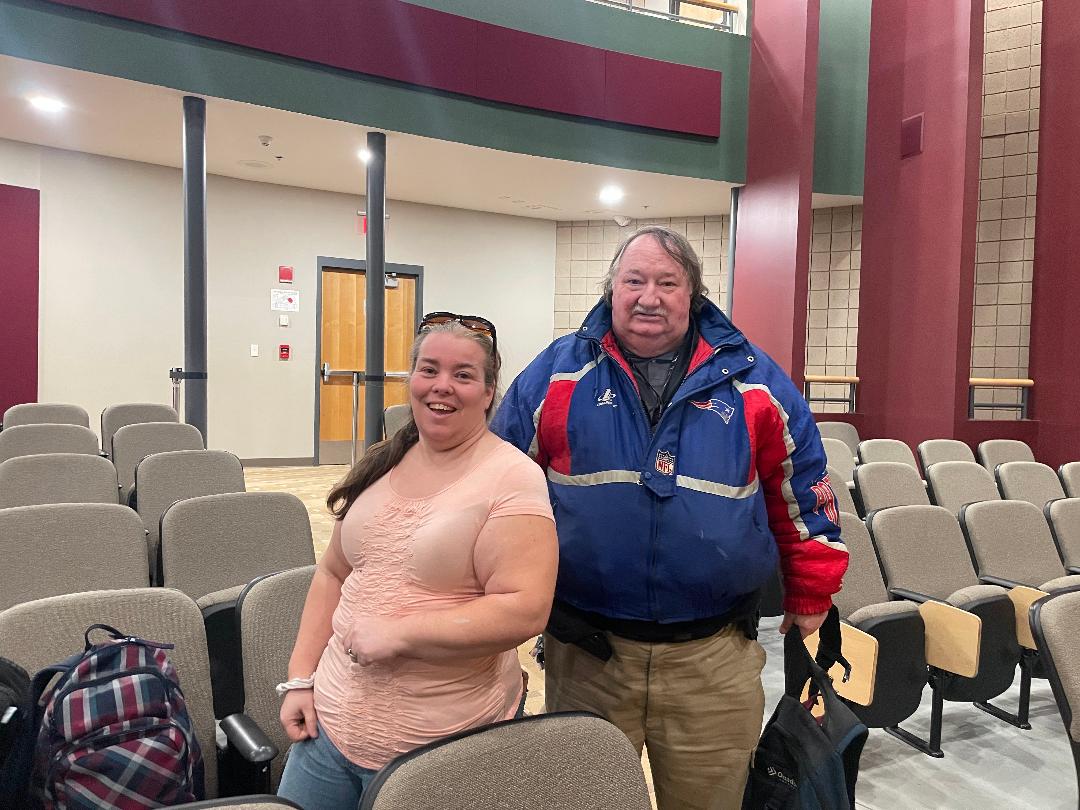
RIPTA staff said the assessment, which is required by federal law, uses federal guidelines to determine income level and survey data that only accounts for who was taking the bus at the time of the last survey.
Michelle Parker told ecoRI News she was “sad to see the bus go … RIPTA has always helped us.”
“I’ve taken every single bus on this island,” her husband, Kenneth, added.
They don’t have a car because it’s too expensive, but Michelle said she plans to learn how to drive, just in case.
‘RIDE is the only way’
For some Rhode Islanders, RIPTA is an essential service if they have disabilities that prevent them from driving.
In addition to fixed-route and flex buses, RIPTA offers American with Disabilities Act-compliant service through its RIDE Program. RIDE buses are smaller than fixed-route buses and offer door-to-door service for qualifying residents with disabilities.
RIDE only operates within a three-fourths of a mile corridor of fixed-route service, which means those buses will also hypothetically be impacted by the cuts. RIPTA is currently running a pilot program to offer paratransit service to the entire state for a year, or until the $500,000 allocated from RIPTA’s gas tax revenue by the General Assembly is exhausted, which could be sooner.
Zach Gauthier testified at the public hearing in West Warwick that if line 23 is cut, and paratransit service around it, he won’t be able to visit his brother and new sister-in-law, who he hopes will soon be expecting a baby.
“I want to see my niece or nephew walk, hang out with them, and RIDE is the only way to do that,” said Gauthier, who uses a wheelchair and doesn’t drive. “I beg you, I implore you, to come up with a better solution.”
‘The greenest people in the state’
In addition to testimony about how the line cuts will impact those who can’t afford cars or don’t drive, many riders talked about how public transit was a preference and how the route cuts will likely force them to get on the road when they don’t want to.
A group of administrative workers who live in northern Rhode Island said at a Providence public hearing that they commute into the city on the 59X.
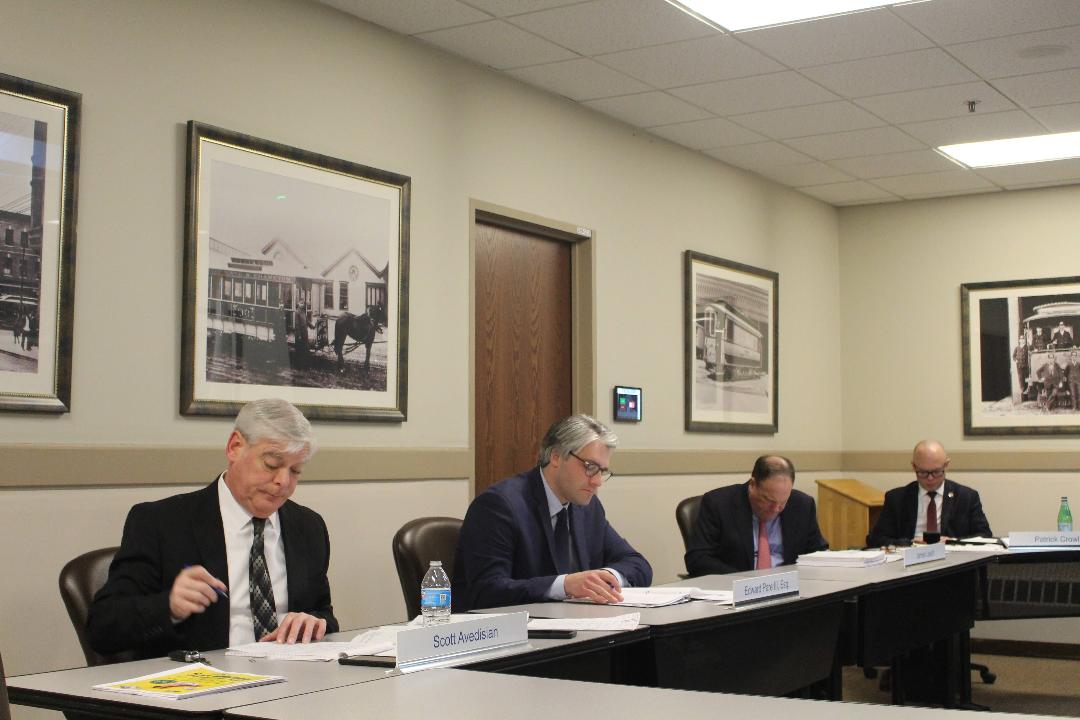
Eliminating the line “will double our commute,” said Elizabeth Baglini, who lives in Woonsocket. She explained she doesn’t feel safe driving into Providence. (Car accidents are the leading cause of death for people 54 and younger in the United States, according to the Centers for Disease Control and Prevention.)
Baglini argued that the buses should remain in service because of the “impact on the roads, which are already crumbling … the emissions, the added drivers, the added traffic.”
Several people throughout the course of the hearings spoke about how their choice to take transit was directly related to their desire to lower their greenhouse gas emissions.
Jim Tall, a Foster resident, testified that he only agreed to move to a more rural area because he knew that RIPTA would be able to take him into Providence, where he works.
Tall had spoken to ecoRI News last year when RIPTA extended the 10X’s last stop to Foster, a mere 8-minute walk from his house, when it had previously stopped in Scituate. He had explained that he doesn’t own a car largely for environmental reasons.
“I’m tickled,” he said at the time, after getting off the bus on its first day of service last April.
Now, under the proposed service cuts, the entire line would be eliminated.
Transit rider and advocate Valerie Reishuk also attended the meeting and said she was lucky enough to not be personally impacted by the line changes, but said she still felt disheartened by them.
“My fellow riders, as I ride daily here in Providence, are the greenest people in the state,” she said.
To achieve Rhode Island’s Act on Climate goals of reducing climate-polluting emissions, public transit will have to be a big part of the solution, Reishuk said. Addressing RIPTA’s board of directors, she said, “I hope you all position us as climate champions.”
What comes next?
On Thursday, RIPTA got a step closer to solving its driver shortage problem and possibly avoiding widespread service loss when its board voted to increase wages for bus drivers.
Entry-level driver positions at RIDE (where all RIPTA drivers have to start) will now make $25.33 an hour. Previously, RIPTA paid $21.71 an hour.
Other operators and coordinators represented by the Amalgamated Transit Union 618, which represents RIPTA workers, could see a up to a dollar-per-hour-pay increase, depending on their position and seniority.
The agreement between the union and the authority is effective as of Feb. 17.
RIPTA chief financial officer Chris Durand said the wage increase was already factored into the agency’s most recent budget draft for the upcoming fiscal year.
It’s unclear whether the pay increase will improve hiring rates at the agency to help alleviate the driver shortage and avoid line cuts.
While the driver shortage is one hurdle, RIPTA also faces an $8 million deficit, a problem that RIPTA staff and riders mentioned frequently at several of the public hearings.
“Do you have an estimate of how much deeper cuts have to go to make $8 million,” on top of the cuts caused by the driver shortage, one person asked at one of the Providence hearings.
Avedisian, RIPTA’s CEO, sighed and looked to Durand at the back of the meeting room.
Durand paused before saying, “A lot more.”

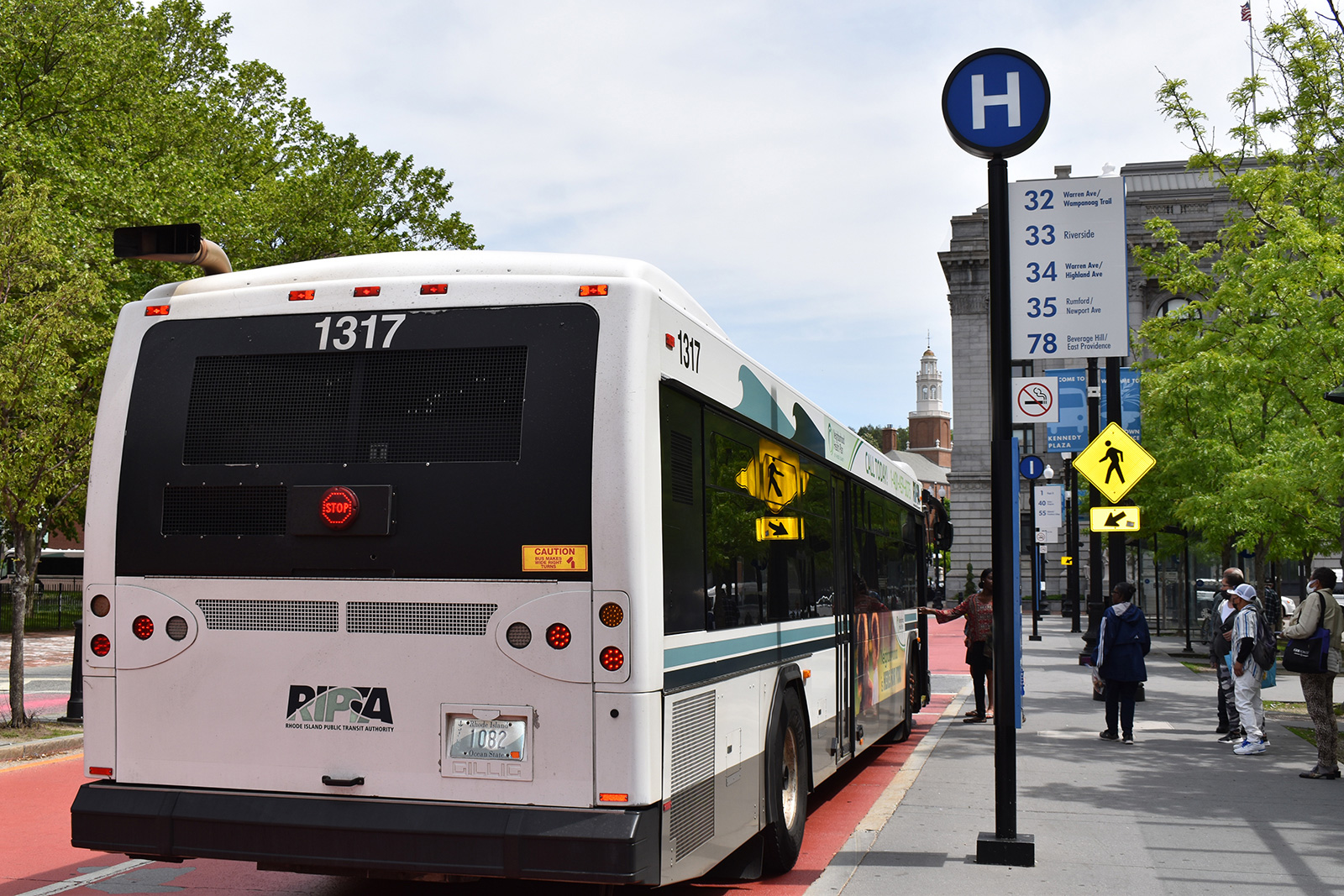
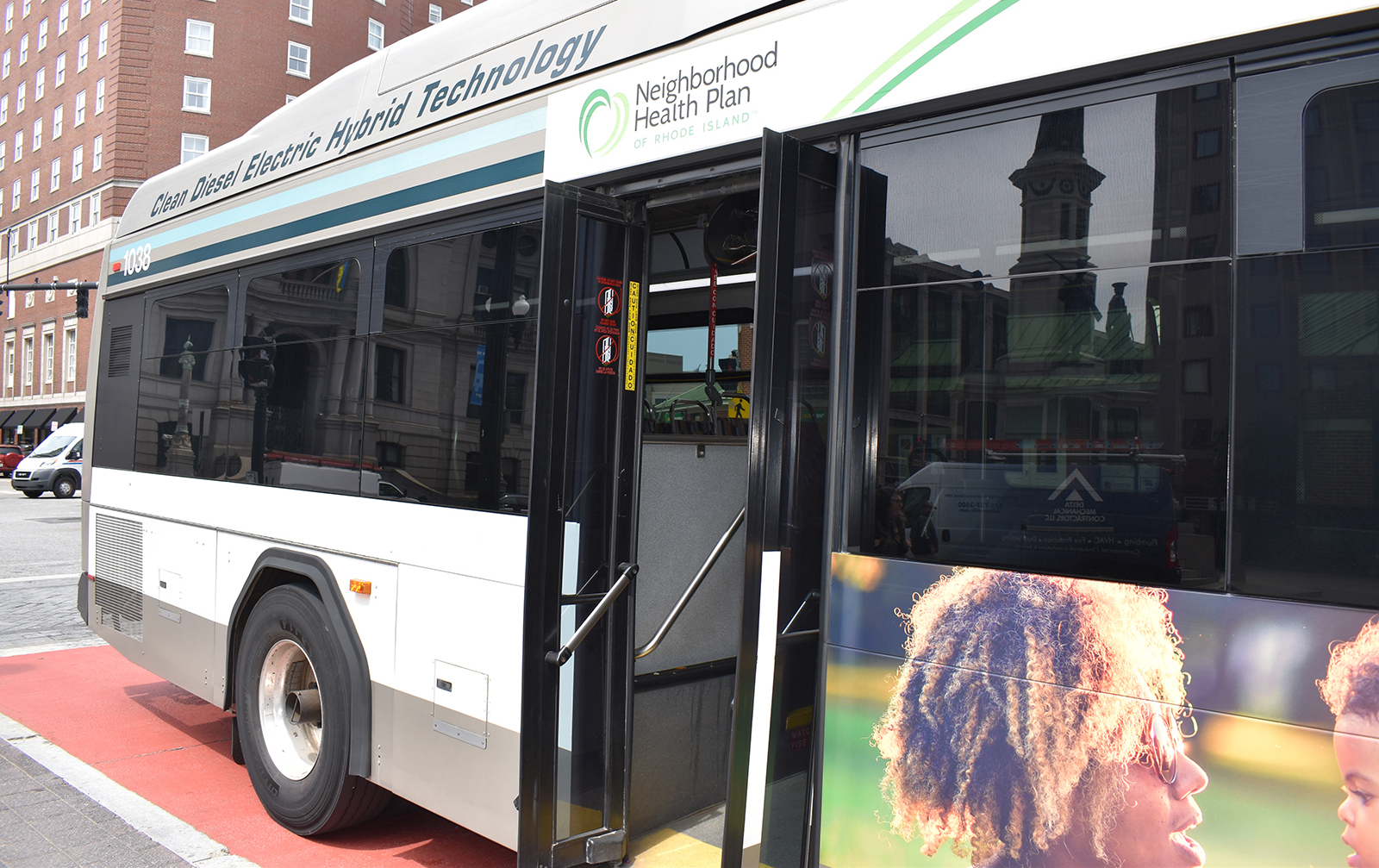
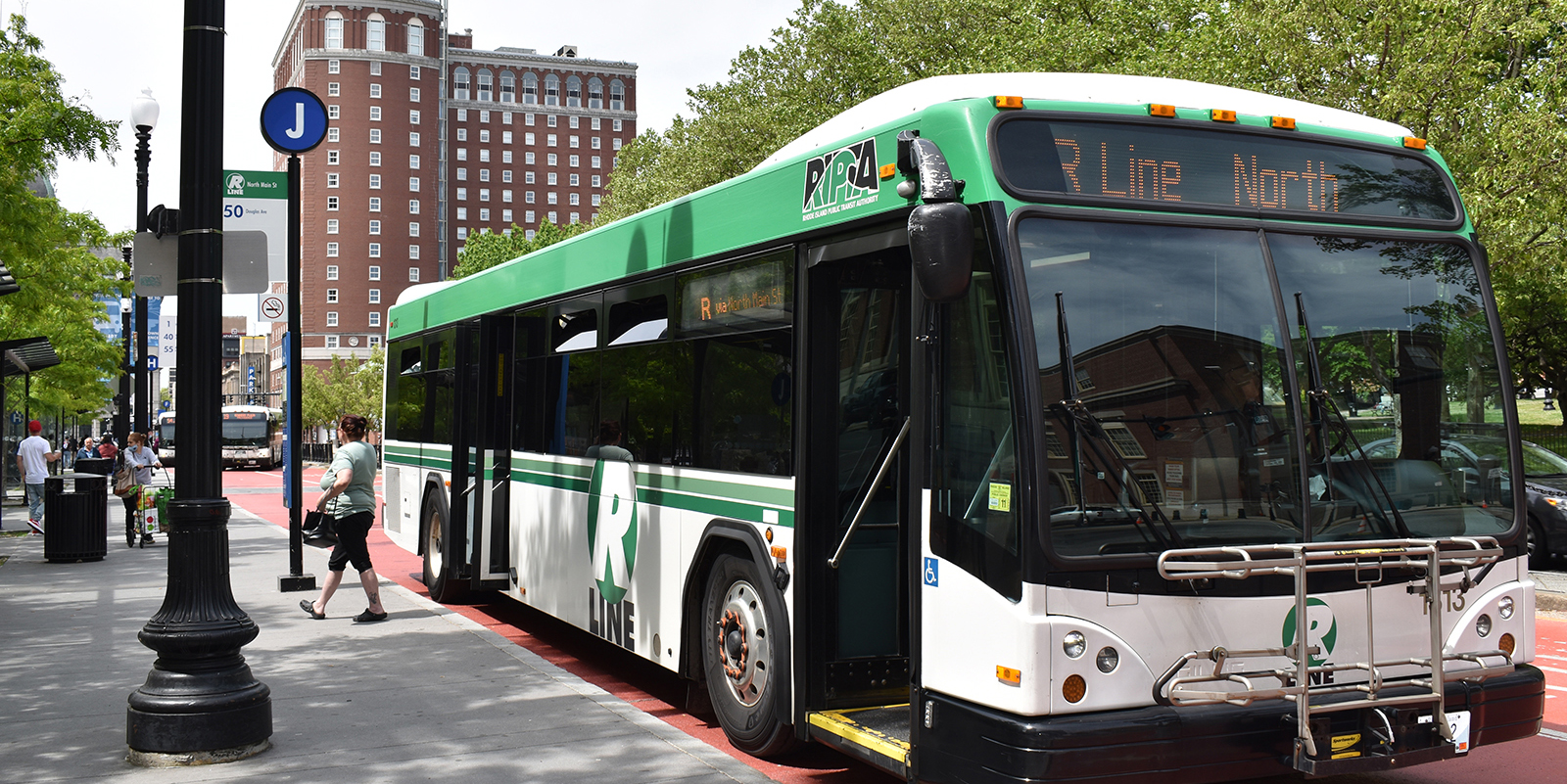
Its all well and good that people that want to be green choose to ride the bus….but it is by no means justifiable that full size RIPTA busses are running empty at all hours of the day just so they can feel good. their contribution to reducing GHGs by riding the bus is likely de minus. on the other hand folks that can t afford a car and live within an urban radius should have public transportation to enable them to function. i see a lot of empty full size city buses running around in south county at very late hours. has anybody (and i suspect the answer is yes) looked at the riding demographics of the bus routes. why can t RIPTA run compact size buses to service the off hours ridership. has the state looked at a voucher program for public transit riders who ride buses that are mostly empty? the state is not going to have a public transit system like boston. the development of walking and bicycle paths is not going to solve the need for public transit. the constant complaining by urbanites who don’t need to cover many miles a day to earn a living is getting long in tooth. RIPTA either has to be considered a public service and funded as a line item budget or run as a self sustaining enterprise fund. right now its straddling both and neither is working.
No public transit system in the world runs strictly on the farebox. They all require subsidies.
Today I was reading about life sciences hub RI is funding. There is much to critique in the state efforts to grow life sciences, including the neglect of public health. If we actually want to se an increase in life expectancy funding RIPTA would increase life expectancy way more than the life sciences hub which will mostly just help rich folks and contribute to gentrification.